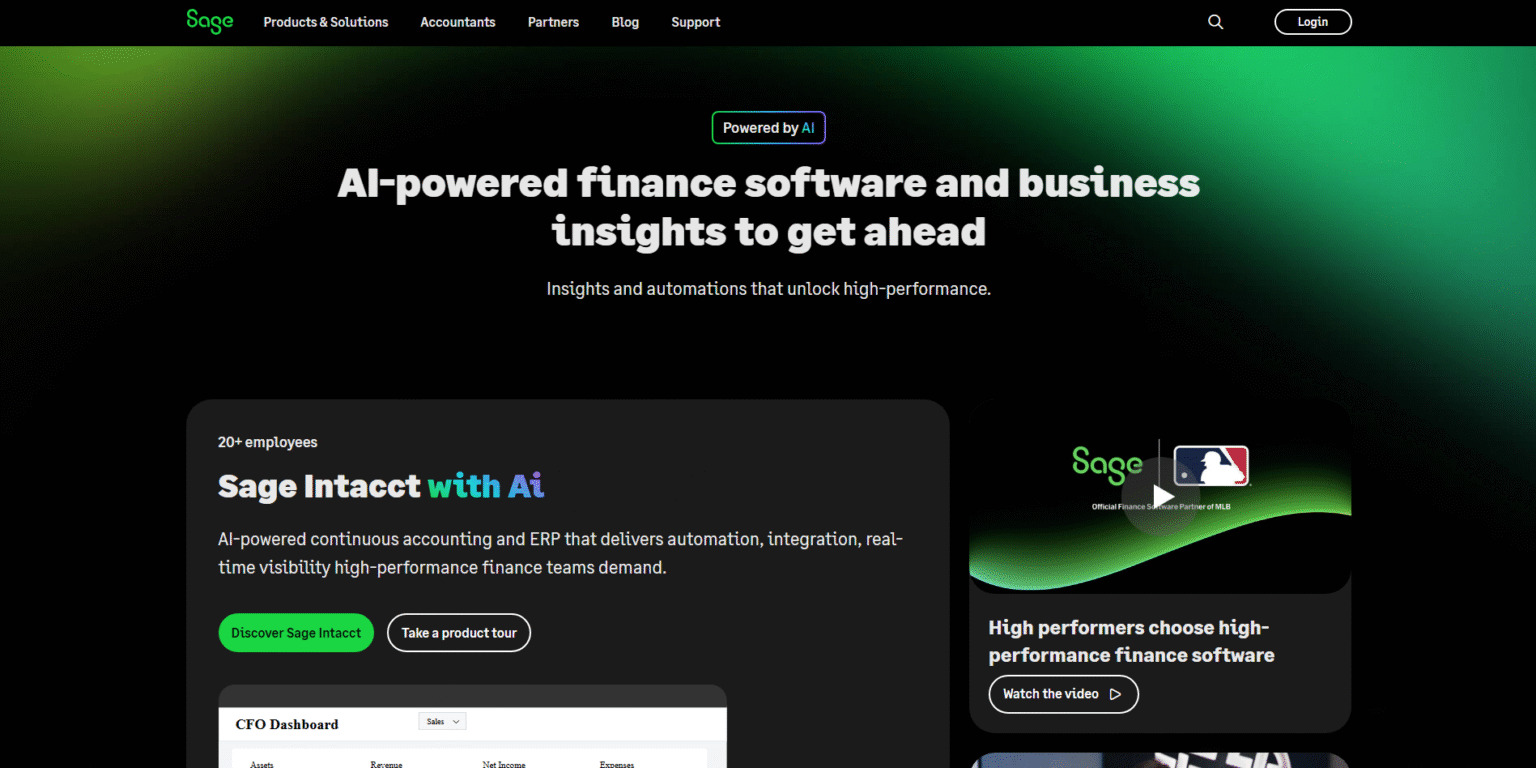Introduction
In today’s fast-paced business world, managing finances, payroll, human resources, and enterprise operations effectively is crucial. Companies, both small and large, require reliable software solutions to streamline their operations. One of the most trusted and widely used solutions is Sage Software. But what exactly is Sage Software, and why is it so important for businesses?
This article provides an in-depth look at Sage Software—its definition, history, features, benefits, and how it helps organizations manage business processes efficiently.
What is Sage Software?
Sage Software is a suite of enterprise resource planning (ERP), accounting, payroll, and business management tools developed by The Sage Group plc, a British multinational enterprise software company. It is designed to help businesses automate and streamline critical tasks such as:
-
Financial accounting
-
Payroll processing
-
Customer relationship management (CRM)
-
Human resource management
-
Enterprise management
Sage is especially popular among small and medium-sized businesses (SMBs), but it also offers solutions for larger enterprises. Its flexibility makes it one of the top choices for organizations that need reliable accounting and business management software.
Brief History of Sage Software
Sage Software was founded in 1981 in Newcastle, United Kingdom. Initially, the company focused on developing accounting software for small businesses. Over the years, it expanded into multiple industries and became one of the largest providers of ERP and financial software in the world.
Today, Sage serves over 6 million customers worldwide and operates in more than 20 countries, making it a truly global business solution provider.
Key Features of Sage Software
-
Accounting and Financial Management
-
General ledger, accounts payable, and accounts receivable
-
Budgeting and forecasting
-
Tax compliance management
-
-
Payroll Processing
-
Automated salary calculations
-
Tax deductions and compliance
-
Employee payslip management
-
-
Human Resource Management (HRM)
-
Employee data management
-
Performance evaluation tools
-
Recruitment and onboarding support
-
-
Customer Relationship Management (CRM)
-
Contact and lead management
-
Sales forecasting
-
Customer support and service
-
-
Enterprise Resource Planning (ERP)
-
Inventory management
-
Supply chain optimization
-
Business intelligence reporting
-
-
Cloud-Based Solutions
-
Remote access from anywhere
-
Data security and backup
-
Scalable solutions for growing businesses
-
Types of Sage Software Products
Sage Software offers a wide range of products to cater to different business sizes and needs:
-
Sage 50cloud – A hybrid accounting software designed for small businesses.
-
Sage Intacct – A powerful cloud-based financial management and ERP solution.
-
Sage Business Cloud Accounting – Perfect for freelancers and small businesses.
-
Sage 200 – Aimed at growing companies that require advanced financial and operational tools.
-
Sage X3 – An enterprise-level ERP solution for larger organizations with complex needs.
Benefits of Using Sage Software
-
Efficiency – Automates repetitive tasks, saving time and reducing errors.
-
Scalability – Grows with your business, from small startups to large enterprises.
-
Compliance – Ensures adherence to tax laws and financial regulations.
-
Accessibility – Cloud solutions provide anytime, anywhere access.
-
Data Security – Protects sensitive business and employee information.
-
Better Decision-Making – Provides real-time insights and analytics for strategic planning.
Who Uses Sage Software?
Sage Software is used across multiple industries, including:
-
Retail and e-commerce
-
Manufacturing
-
Healthcare
-
Professional services
-
Construction
-
Non-profit organizations
Both accountants and HR professionals rely heavily on Sage for its reliability and wide range of features.
Comparison with Alternatives
When compared to competitors like QuickBooks, Xero, or Microsoft Dynamics, Sage Software stands out because of:
-
Its wide product range (from freelancers to large enterprises).
-
Strong ERP capabilities.
-
Long-standing reputation in the market.
QuickBooks and Xero are often preferred by small businesses, while Sage offers more comprehensive ERP features suitable for medium to large companies.
Challenges and Limitations of Sage Software
Although Sage Software is powerful, it does come with some challenges:
-
Learning Curve: New users may find it complex at first.
-
Cost: Some products are more expensive compared to alternatives.
-
Customer Support: Users occasionally report delays in support response.
However, for businesses that need robust and scalable solutions, the advantages often outweigh these challenges.
Future of Sage Software
Sage continues to innovate by integrating artificial intelligence (AI), automation, and advanced analytics into its products. The focus is on creating smarter business solutions that adapt to evolving market demands. With cloud adoption growing globally, Sage is expected to expand its dominance in accounting and ERP software solutions.
Conclusion
Sage Software is more than just accounting software—it’s a comprehensive business management solution. From small startups to large enterprises, Sage provides the tools needed to manage finances, payroll, HR, and overall business processes. With its flexibility, global reach, and continuous innovation, Sage Software remains one of the most reliable choices for businesses worldwide.
If you are a business owner looking for a secure, scalable, and efficient solution, Sage Software could be the perfect fit for your needs.
Question:
Which of the following is NOT a feature of Sage Software?
A) Payroll Processing
B) Customer Relationship Management (CRM)
C) Social Media Marketing Automation
D) Financial Accounting
Correct Answer: C) Social Media Marketing Automation



